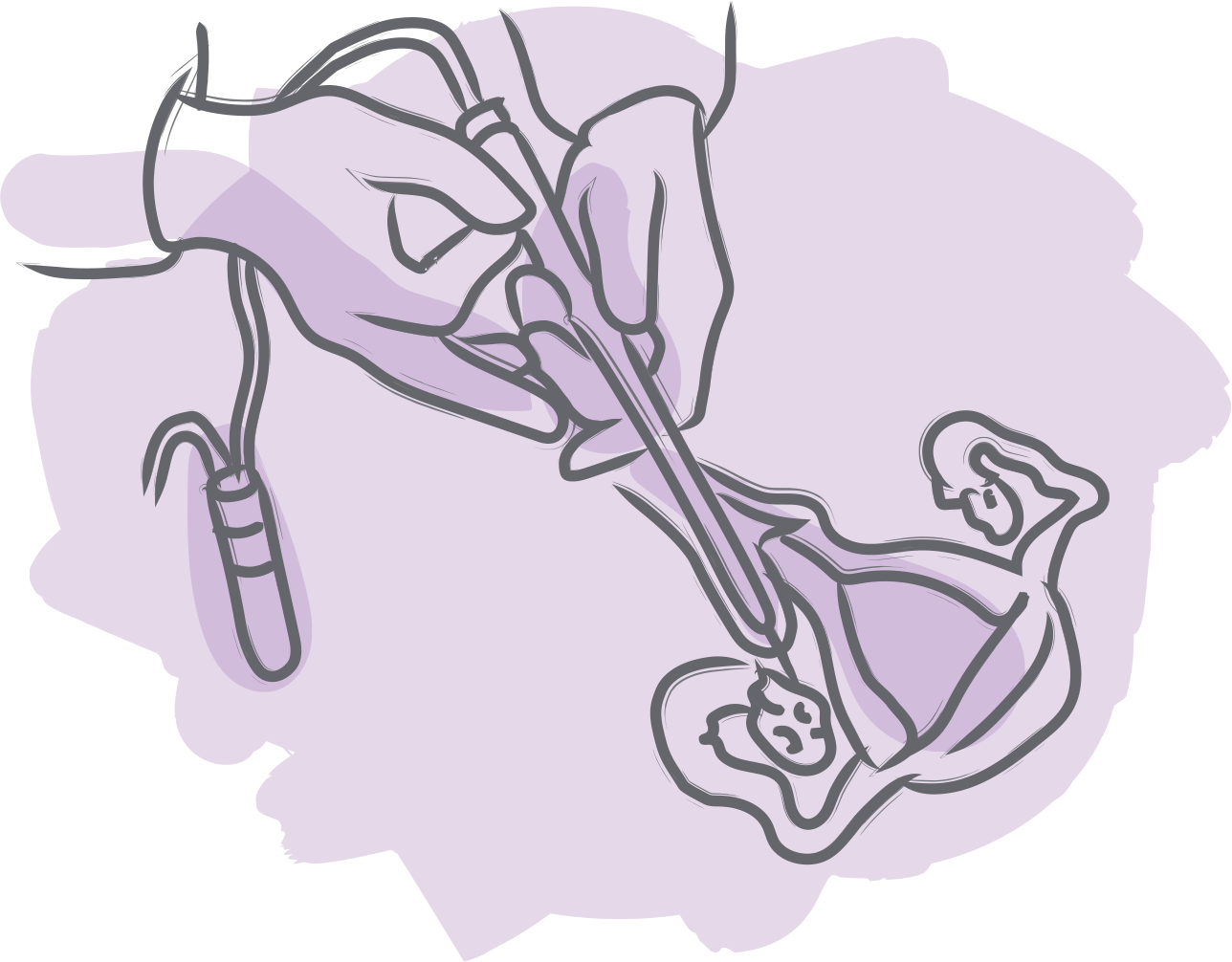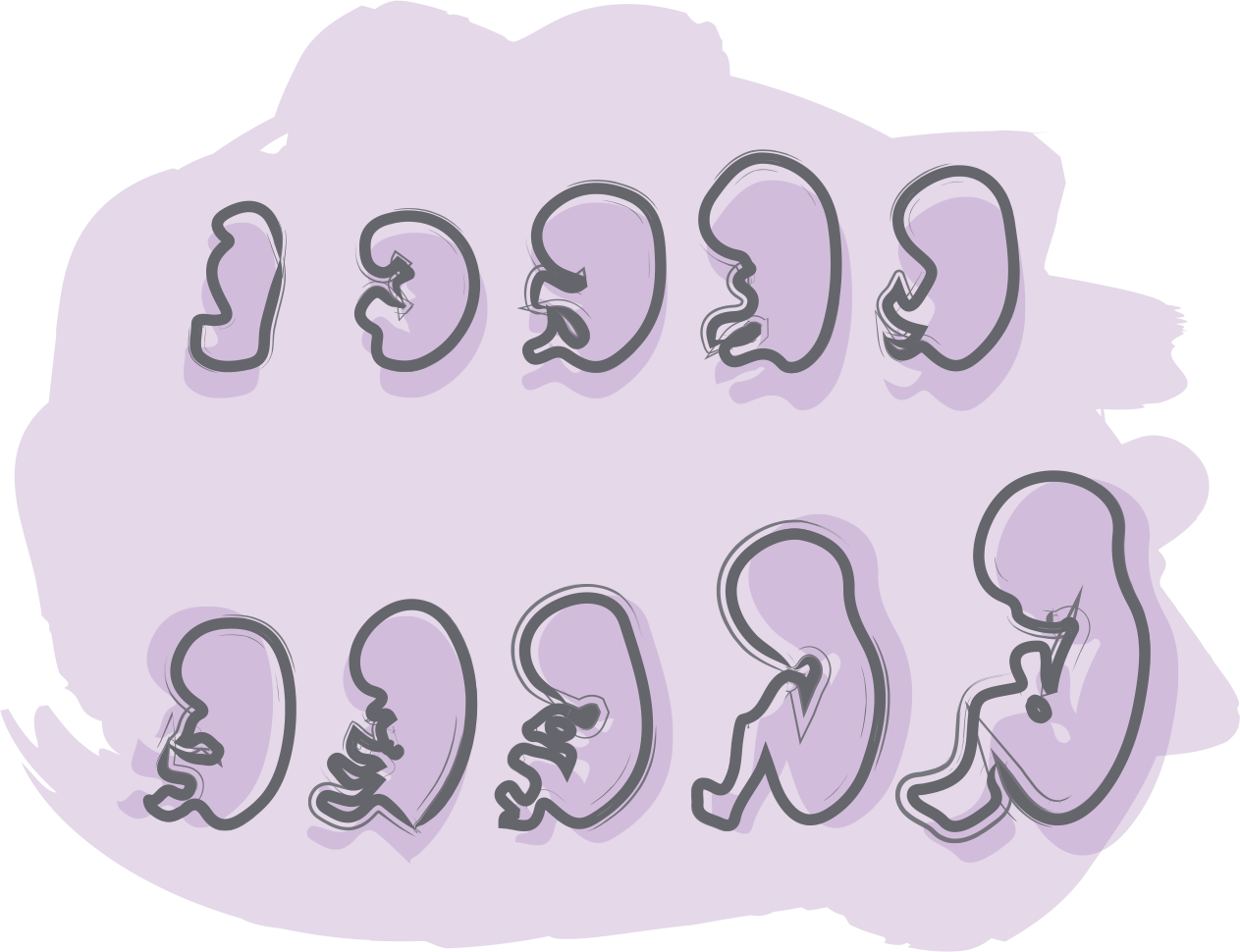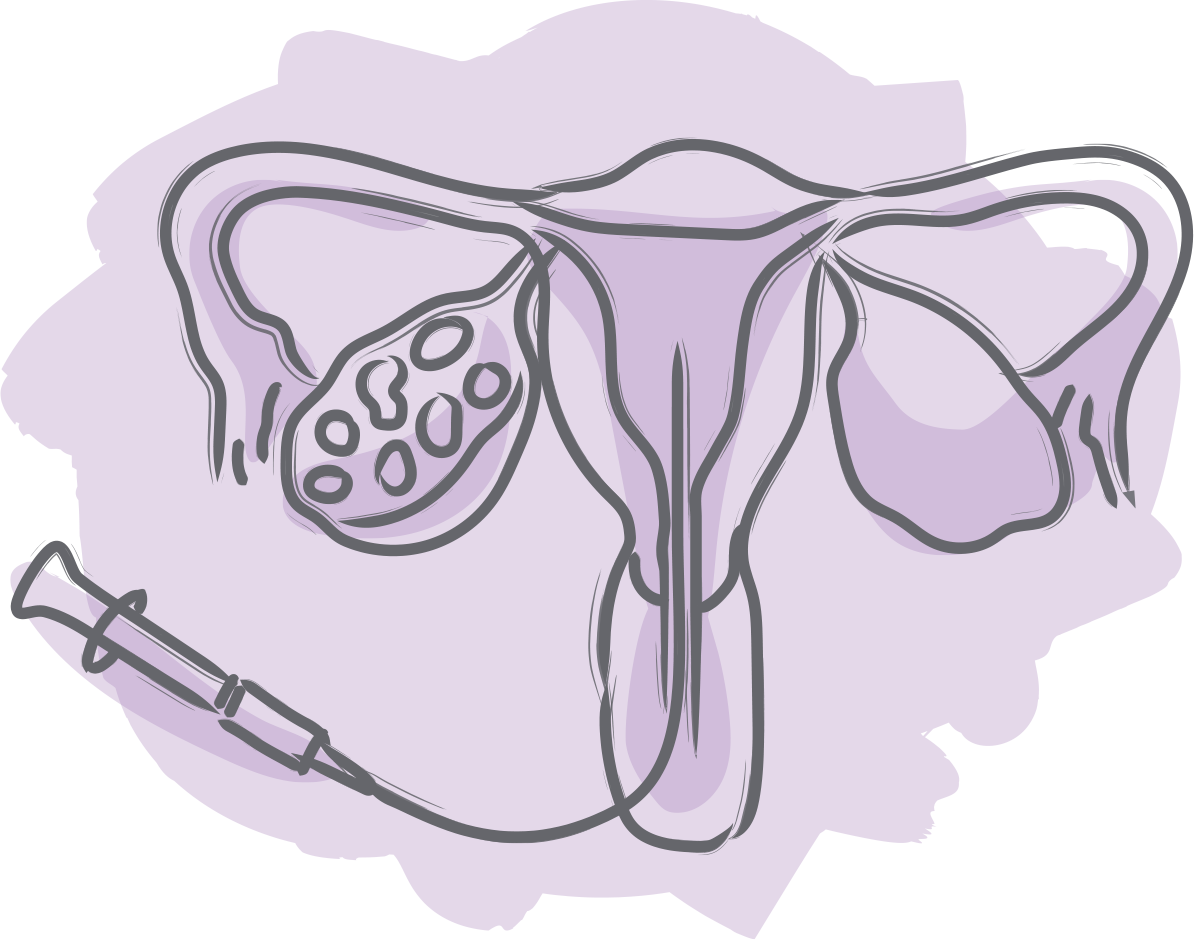IVF Process
What is the IVF Process?
In vitro fertilization, or IVF, is the act of fertilizing an egg with a sperm cell outside of the body, in the laboratory. IVF is a complicated process that contains many different steps and procedures, each designed to increase the likelihood of a successful pregnancy.
When you initiate care with Aspire, you’ll meet with one of our physicians and dedicated infertility nurses. Your physician will order initial diagnostic testing to get more information about your case and make individualized recommendations based on your results. Learn more about the IVF process, and the innovative treatment techniques used at Aspire Fertility below.
The IVF Treatment Process
IVF is a complicated process that requires precise timing and several steps. While IVF is generally considered to be a safe procedure, it isn’t without risks. Your physician will speak with you about your case, whether IVF may be useful for your situation, and the potential risks and benefits. There are five stages to IVF treatment:
1. Pre-Cycle Preparation

In preparation for an IVF cycle, you and your partner will undergo pre-cycle testing. There are several different types of testing that can be performed, including:
- Blood tests for both male and female partners
- A pelvic exam
- Transvaginal ultrasound
- Sometimes, a hysteroscopy for the woman
Once the diagnostic testing has been performed, you will sit down with your physician to review your test results and plan your treatment protocol. The provider will order a course of birth control pills to start the cycle. You may take the pills for several days or weeks to help:
- Decrease the chances of forming cysts that could interfere with the start of the cycle
- Synchronize the egg follicles so they all start at the same stage
- Allow the physician and patient to control the timing of the cycle.
2. Ovarian Stimulation

A normal ovulation cycle typically produces one mature egg per month. In an IVF cycle, the goal is to generate as many mature eggs as possible to increase your odds of conception.
In the IVF stimulation phase, injectable medications are used for approximately 8 to 14 days to stimulate the ovaries and produce additional eggs. These medications are derived from the hormones Follicle Stimulating Hormone (FSH) and Luteinizing Hormone (LH), the natural hormones involved in a normal ovulation process.
The stimulation phase ends with a ‘trigger shot’ of hCG - a large-dose hormone injection that causes the developing follicles (the structures that hold the tiny eggs) to mature, and sets ovulation in motion. Timing of this injection is critical. The goal is to optimize the maturation of your eggs, with retrieval occurring right before ovulation occurs.
3. Egg Retrieval

Approximately 36 hours after your final trigger shot, you’ll come into the state-of-the-art Assisted Reproductive Technology (ART) lab at our fertility clinic for egg retrieval.
During the egg retrieval procedure, your physician will use the ultrasound to look at the ovaries and guide a needle into each ovary. The needle will puncture the ovary and drain the follicular fluid and eggs from each mature follicle. The fluid will be carefully passed to the embryologist for sorting and identification of each egg. The egg retrieval process takes about 20-30 minutes.
Most women have minimal discomfort after the procedure and will return to work the next day. The nurse and physician will give you additional information about what to expect after egg retrieval.
4. Embryo Development

Our teams are dedicated to customizing your treatment plan by thoughtfully integrating all necessary procedures, including ICSI.
- Conventional fertilization - the embryologist isolates healthy sperm and exposes them to each egg for natural fertilization.
- Intracytoplasmic sperm injection (ICSI): a new technique where the embryologist selects a single, healthy sperm and injects it directly into the center of each egg, greatly enhancing the odds of fertilization. ICSI is our standard of care for all patients.
Once fertilized, the embryos begin to develop. Every morning for the next five to six days, the embryologist examines them to ensure they are progressing properly.
During this time, your physician will decide whether to recommend pre-implantation genetic diagnosis/screening (PGD/PGS). Genetic screening can identify embryos with chromosomal abnormalities, and can help to:
- Select for embryos that are not carriers for genetic disease markers
- Minimize the need for selective pregnancy reduction by transferring only those embryos with the greatest chance of success
- Reduce the need for invasive testing such as amniocentesis or chorionic villus sampling (CVS)
- Reduce the risk for miscarriage
5. Embryo Transfer

The embryo transfer is a simple procedure that takes about five minutes, with no anesthesia or recovery time needed. Because it is likely to increase your odds for a successful pregnancy, delayed embryo transfer (freezing embryos until your body has recovered from the stress of IVF) is our standard of care.
The morning of the transfer, your embryologist will make a final assessment of the embryos and recommend which to transfer, based on overall embryo quality and age (ideally at day 5 or 6). Before the transfer, you and your REI will review your cycle together and make the final decision regarding the number of embryos to use.
Inside the ART lab, your embryologist will locate the embryos to be transferred and verify all identifiers—including your name and identification number—and compare them to the embryo culture dish and corresponding egg datasheet. Aspire Fertility is one of the few centers in North America whose labs use sophisticated the RI Witness technology, which uses Radiofrequency Identification Tags (RFID) to ensure that you are associated with your embryos at all times.
Finally, the transfer catheter is loaded with your embryos. During the transfer, your REI will insert a small catheter through the cervix and into the uterus. Once the catheter is in the correct place, your REI will push the embryo into the uterus with a small puff of air. The procedure is guided visually by ultrasound.
Once the embryos have been transferred, your provider will slowly remove the catheter to prevent the uterus from contracting. Because the embryo is invisible to the naked eye, your embryologist will check the catheter under a microscope to make sure the embryo was released.
Embryo Transfer Follow Up
About two weeks after your embryos are transferred, we’ll do a follow up blood test to check the level of hCG (the pregnancy hormone) to determine if implantation was successful.
You may have some vaginal spotting or bleeding prior to the test, but don’t automatically assume it is a period. We’ll still need to do the pregnancy test to be sure. It is important to continue all of your medication during this time. This is true regardless of the symptoms you may experience or whether a home pregnancy test is positive or negative. Please get in touch with your IVF nurse if you have any questions or concerns, or before you make any changes to your medication.
If your pregnancy test is positive, we’ll do repeat blood tests every two to five days to make sure that hCG levels are rising as they should. Watching these hormone levels is the only way of monitoring the progress of an early pregnancy.
At about 5 weeks, we’ll do an ultrasound scan. This allows us to see:
- If the pregnancy is normally located (an intrauterine pregnancy)
- If the pregnancy is abnormally located (an ectopic pregnancy)—if your pregnancy is ectopic, we will monitor it carefully
- If your pregnancy test is positive but there are no signs of pregnancy on the scan, this indicates the presence of a pregnancy of unknown location. In this case, we’ll do follow up blood tests to check hCG levels, and then repeat the scan after seven to ten days
- If the scan reveals a pregnancy of uncertain viability (small gestational sac, no obvious yolk sac or fetus, abnormally small fetus, or no fetal heartbeat) we will repeat the ultrasound after seven to ten days before making a firm diagnosis.
- Whether there is more than one fetus.
If your pregnancy is normal, we’ll refer you back to your OB/GYN for routine follow up between six and ten weeks, depending on your individual situation. We will remain in contact with their office to follow your pregnancy through live birth. We encourage you to keep in touch with us along the way and look forward to hearing from you after delivery!
Success Rate of IVF
There are many factors that can influence your individual success rate for treatment. These include the age and health of the female partner, the presence of genetic abnormalities in either partner, and the type of treatment that the couple is undergoing. It is important to speak with your Aspire physician about your case and the recommended treatment, and the expected success.
IVF at Aspire
Your happiness and experience at Aspire Fertility is of the utmost importance to us. We understand that undergoing fertility treatment can cause significant stress, confusion, and anxiety along the way, and we aim to make the process as positive as possible. While we pride ourselves on offering evidence based care as our standard, it is our dedication to improving communication and transparency that sets us apart.
At Aspire, we aim to establish and maintain an ongoing relationship with our patients that is based on trust, mutual respect and communication. During your initial consultation with our office, you’ll meet with the entire IVF team that is dedicated to your care, including your physician, embryologist, primary fertility nurse, on-site counselor and financial advisor. In addition, you’ll get a tour of our facility, so you can actually see the lab where your embryos are created and stored.
Pregnancy is never a guarantee in fertility treatment, but at Aspire, we can promise better service, honest communication, and improved standard of care.
Schedule an IVF Consultation
Infertility and IVF are already stressful. It’s important to choose a physician who understands this and provides sensitive treatment to all of their patients. Schedule an appointment with one of our physicians and or email Aspire with any questions. We invite you to learn more about our Texas locations, get five-star patient support or request an appointment to get started.

















